Reflections on a Teaching Career #8
New Courses, Recognition, & Awards
As my years of teaching went on, one of the great pleasures, and challenges, was teaching new courses. I always loved the idea of putting together a new curriculum, especially when I had total freedom to cover what I wanted which was almost always the case. I had developed a History of Film course at Moraine which I really enjoyed since I had studied so much history in graduate school. I loved incorporating clips, shorts, and foreign films that I knew students would not have had much, if any, exposure to before. By the late 2000s and early 2010s students might say something like, “my dad used to watch those movies,” or even, “well, it’s not bad for a movie made in the 20th Century.” Never mind the obvious fact that community college students at that point rarely ventured into black and white or foreign films – unless they were forced to in high school. I’d get the random over familiarity with films such as 12 Angry Men, To Kill a Mockingbird, and Cool Hand Luke thanks to that.
Mostly though, students knew what the most recent films were, especially if they were big budget high profile releases. On the first day of class at Moraine I’d ask students to come up with a list of their Top Ten Films of all-time. It was a shock to me initially but gradually I began to accept that many students would include then new releases on their lists such as Patch Adams and The Butterfly Effect. Remember those classics…?
So, the History of Film course satisfied my need to expose students to something new (or old, to be more accurate.) That was as far as I could go with developing new courses at Moraine. Community colleges are generally trying to get students to transfer to four-year institutions, so the idea was to create transferable courses.
DePaul was a different story since the students I taught were mostly film or television majors. One of my favorite courses to teach, at least initially, was one called The Big Picture: The Entertainment Industry. I’d get to talk about the business as opposed to film theory or history. We’d discuss studios, marketing, financing, film festivals, and other topics that would give students a wider perspective on the field they planned to enter. I’d even throw in a section on what it meant to be a professional in the business, not a student making films for their programs.
That course was constantly evolving over the years, partially by me and partially by the program which wanted to make it as relatable to their future needs in the industry as possible. In my later years of teaching a DePaul the focus of it was on the needs of those creating a production company. Now called Creative Producing, I felt this moved the course into an even less accessible direction as many students would never develop their own companies and left out the wider aspects of the business that, realistically speaking, most students needed to have. I became disinterested in this new version and stopped requesting to teach it.
Some of the other courses I taught included The Art of Screen Acting and Classic Hollywood Film Structure. Most fun was moving into the television realm with courses like Foundations of Television and Television Genres. These courses tapped into my long-time love of television. I was thrilled to introduce students to All in the Family, Mary Tyler Moore, The Twilight Zone, and The Carol Burnett Show.
The department would hold an Emmy predictions contest each year which I coached the students on, and we usually won. It was fun diving into television genres, ratings, and the emergence of streaming platforms. This was usually one of my favorite courses to teach and I even felt a bit more connected to the other faculty in the television program as we’d have occasional meetings and, later, Zoom sessions.
Every time I took on a new course it was definitely a lot of work. Because DePaul operates on a quarter system, I’d sometimes be prepping for a new term just hours after finishing up teaching a previous quarter. (Spring “vacation” didn’t really exist, especially when teaching at more than one college.) Courses were fun to develop but took a lot of hours when creating a syllabus, Power Point presentations, and choosing films/tv series to screen. In the early days of teaching, showing a film could easily take up two thirds of a class session. This was a great time for me to get some grading done but after a while I found I preferred to be in front of a class more than sitting back and watching the same films or TV episodes again and again.
Because of the workload of prepping and teaching sometimes seven or eight courses a term, people were often asking me, “do you think they’ll ever make you full-time?” I had to explain that it didn’t work that way. Sure, it was assumed that the more work you did the more notice you’d be given. However, I’d already learned at both College of Du Page and Moraine Valley Community College, that this rarely ever resulted in a full-time position becoming available. Most colleges and universities rely on adjuncts. We’re usually the larger part of a department’s faculty.
The program I taught in at DePaul was a different story. It became very successful over the years as enrollment skyrocketed and new courses and majors were developed. Curiously, whenever a new full-time position was created, we didn’t hear about it. No one tapped us (or me, in particular) on the shoulder about new full-time openings. Occasionally when I did hear about one, I’d hear they were looking for “Oscar winners” or people with a significant background in film production. I’d watch some of my adjunct colleagues apply for them and not even get an interview. To me, this was demoralizing. I’d felt that I had reached a level in my career, teaching the courses I wanted to, not having to serve on committees, being able to come and go as I wished, getting paid an above average per course salary at a major university, that I didn’t want to lose what I had. I really disliked the whole months long process of applying for a full-time teaching position which would require several interviews and at least one teaching demonstration. It bugged me that my years of service teaching more students than the average full-time faculty member would teach wasn’t enough. The thought of going through that and not getting a position would hurt too much. So, I never attempted it at DePaul. I was very happy with what I had.
I also did not attempt to apply for full-time teaching positions in other states. My husband Frank and I had developed a very solid life and home in the Chicago area and had little interest in moving anywhere else. Would I have liked to have a full professorship somewhere and lead a program? I thought so for a while. As time went on, I was thrilled with what I had achieved. Being in administration no longer interested me. Adjunct teaching was a great life.
Of course, I’d always wanted to get some recognition for what I had accomplished. In the early 2000s while still teaching at College of DuPage, I did receive an Outstanding Part-Time Teaching award which was thrilling. On a smaller but personally equally significant honor, the Film Club at Moraine officially named the prizes we’d give to winners at the student film festival, the Pal Award.
In 2015, I received the Adjunct Faculty of the Year award at Moraine. This I felt was one of my highest career achievements and honors.
Nothing like that ever happened at DePaul where contributions were generally less noticed. Even when I was winning awards at festivals with the short films I was directing with students, I rarely got any attention for it. I’d even have to hold my own film screenings of my work
In the end though I knew I was having an impact on many of my students. Whether it be in the classroom, on a film set, or advising them, I knew my work was paying off.
Next Up: The Pandemic, Teaching Online, and Retiring from Moraine




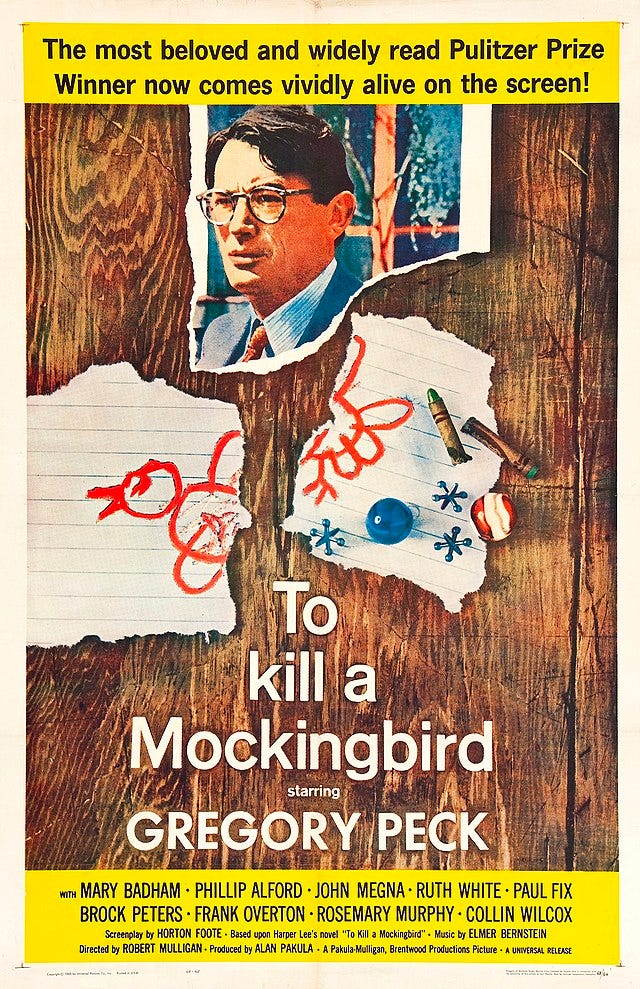
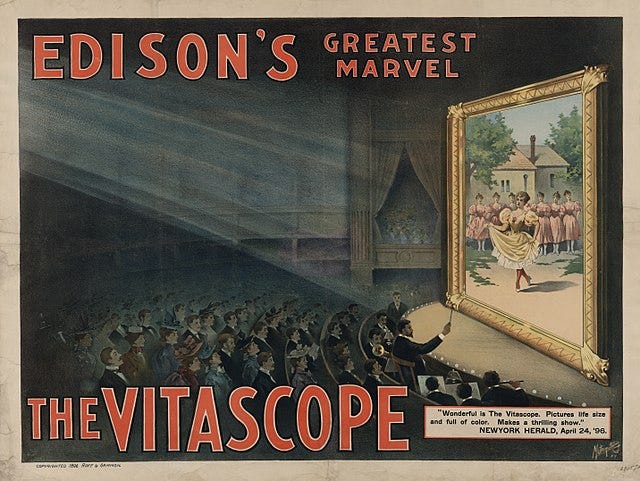
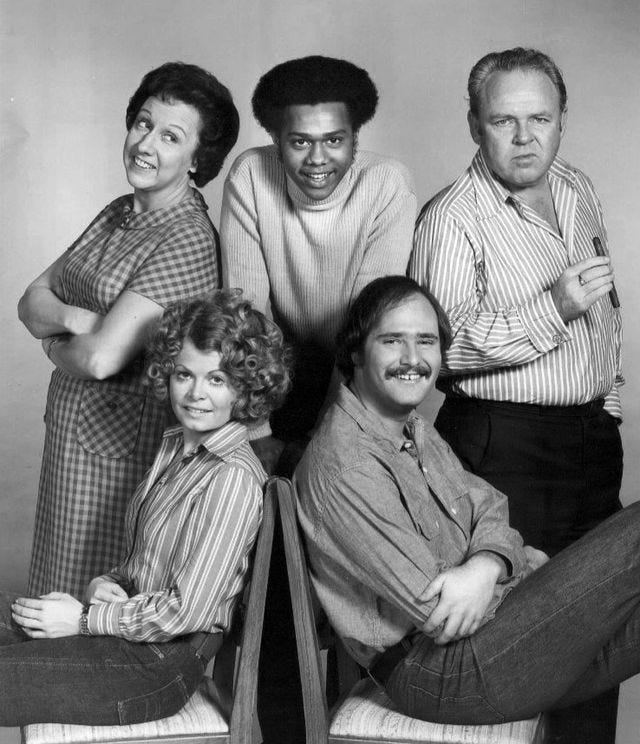
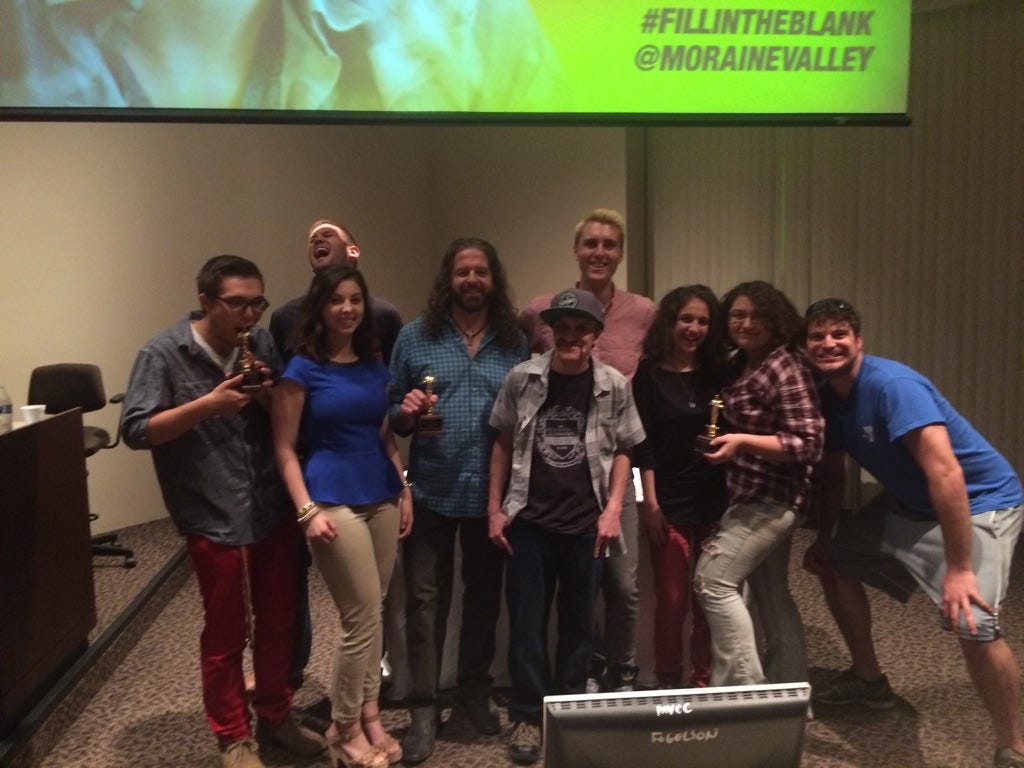
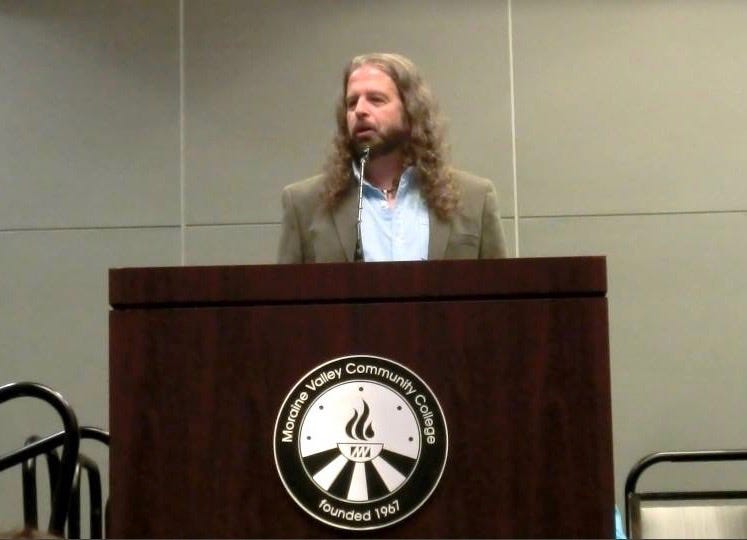

Being named the year’s Outstanding Faculty member at BOTH institutions was a great (and well deserved) honor! I know how hard you worked on developing those new courses. What a great repertoire you created. It’s good you can look back at that creative work with fondness. A career to be proud of and recognition to go along with it.
Love the Pal Award! It was great that Moraine recognized you as Adjunct Professor of the Year.